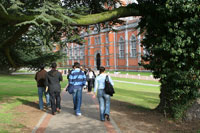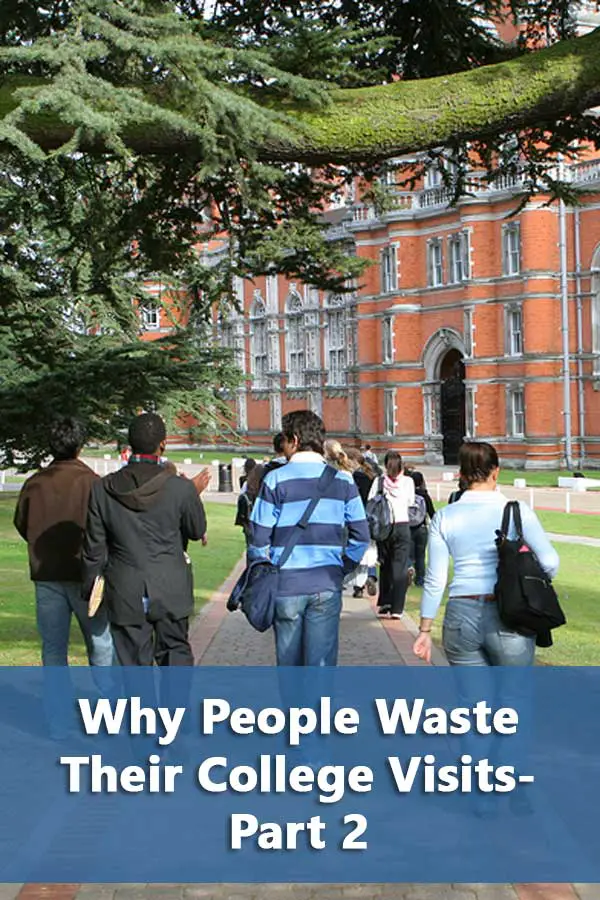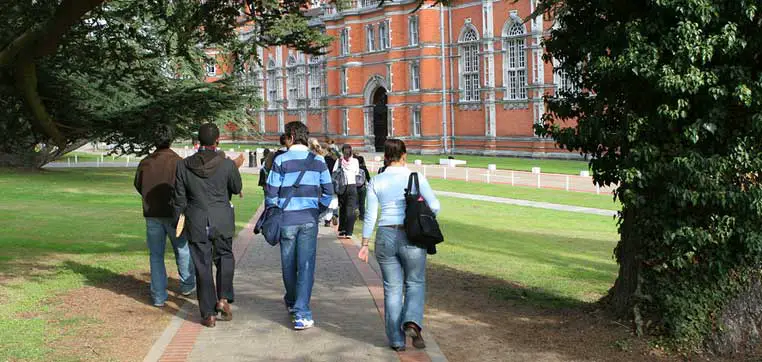 In the first part of Why People Waste Their College Campus Visits, I discussed how students and families don’t make the most of college visits because they don’t understand there are different types of campus visits and don’t prepare appropriately. I covered some common issues regarding campus visits and listed one of three types of campus visits. This post lists the remaining types of visits and what to do if you can’t visit.
In the first part of Why People Waste Their College Campus Visits, I discussed how students and families don’t make the most of college visits because they don’t understand there are different types of campus visits and don’t prepare appropriately. I covered some common issues regarding campus visits and listed one of three types of campus visits. This post lists the remaining types of visits and what to do if you can’t visit.
Which Colleges Should You Apply To Visit
The second type of college visit should be to decide which colleges to apply to and should start in the junior year. These visits need to be done strategically given the limited amount of time high school juniors and seniors have to make such visits.
By this time, families should have a pretty good idea of the kind of school to visit. If you’re raising your hand during the information session to ask if the school has a major in Japanese or want to know the average SAT scores, you haven’t done your homework and you’re wasting your time.
These should be schools that the student has a reasonable chance of getting into and being able to afford. There’s no point in getting a student excited about the school only to realize that she might get admitted but probably can’t afford it since the school offers little chance of merit aid.
Of course, students will want to visit such schools and here’s where parent preparation can pay off. The parents can inform the teen that they can visit with the understanding of the financial realities and then point out that visiting one school can mean not having the time to see another one.
College Visit Strategies
Starting in the summer before the senior year, students can contact admission offices before the visit to arrange for interviews or meet with specific faculty or coaches if they are available. Again, use some basic strategy in these college visits. Start the interviews with the colleges you have the least interest in and build up experience. This way students will be more confident in asking for and during the interviews.
During the fall, many colleges will allow seniors to schedule overnight visits and/or sit in on classes. Sometimes, especially at larger institutions, you might find it easier to bypass admissions and schedule meetings with faculty yourself.
If you do even the most basic internet search on what to do on a college visit, you’ll see the advice to make sure you take the time to explore the campus without the official tour. Ultimately, I would think this experience can be just as hit or miss as taking the tour itself. Who knows, you just might happen to run into the one person who just found out he flunked the test he didn’t study for. There just aren’t going to be any certainties.
There are some things that you should do on every campus that should help the process. Pick up the campus paper, what are the student editorials focusing on? Read the bulletin boards. You won’t know if they mean anything to you until you have several campuses to compare but you never know what they might reveal.
Visit the student center, the library, the rec center, and the career center. Notice their hours, what classes they offer, are they hiring, are they busy, and any warning signs. I mean for real warning signs, copier not working, equipment not available, and requests must be put in writing, that sort of thing.
Which College Should You Accept Visit
These types of college visits happen after you’ve been accepted and can start as early as January (and possibly earlier) of the senior year. These may also come in the form of an invitation by the school for special scholarship competitions.
Often schools have accepted student days in April that are packed with activities to show off the school. There’s always going to be some doubt as to how much such events reveal about the school but it will certainly put you in contact with your future freshman classmates and that can provide valuable insights. Are these people you want to spend the next four years with?
There isn’t any universal factor to look for in these visits. By this point, students should have determined the things that are important to them and use these visits to investigate them further. Based on previous visits, students should have developed the appropriate techniques to get the information important to them.
What if You Can’t Make Any College Visits?
There is no reason to make college visits if they’ll cause financial hardship. Even schools that use demonstrated interest as part of their application process recognize that not everyone can afford to visit their campus.
Students can still contact admission offices or faculty directly to ask them questions about their programs. Most college papers are available online and an increasing number of schools offer virtual interviews as well as local alumni interviews. It is possible to learn everything you need to know without stepping foot on campus.
And visiting local colleges should still be feasible and valuable. If nothing else, the students will have a sense of what it’s like to be on a college campus before their move in day.
CONNECT WITH OTHER PARENTS PLANNING FOR COLLEGE
JOIN THE COFFEE CUP COLLEGE PLANNING FACEBOOK GROUP



2 thoughts on “Why People Waste Their College Visits-Part 2”